|
|
|
|
Nau mai haere mai – welcome to this week’s newsletter.
As of next Monday, all school staff will be expected to have had at least their first dose of the Pfizer vaccine – but there are seemingly sizeable pockets of teachers and other education sector workers who will not meet the government’s mandated deadline.
While it is easy to judge or even condemn such hesitancy or resistance, that won’t help change minds or protect children – especially those under 12 who cannot yet be vaccinated themselves. And it won’t replace teachers no longer allowed into classrooms. So what to do?
As the University of Auckland’s Paul Heyward writes today, the Teacher Council’s Code of Professional Responsibility offers a guide to handling what will inevitably be challenging staffroom conversations (albeit virtual ones in many cases).
“It is my hope,” writes Heyward, “that over the next few months we will see the code truly become ‘our code’ as it guides vaccinated and unvaccinated teachers to have these respectful conversations about what it is to be a critically reflective, ethical teacher in a society in the grip of a global pandemic.”
You’ll find more to read here and on our home page, including this timely analysis by Massey University’s Grant Duncan of the Labour Party’s changes to its leadership selection rules and the implications for Jacinda Ardern.
Thank you for your ongoing interest and support – until next time, mā te wā and all the best.
|

|
Finlay Macdonald
New Zealand Senior Editor & NZ Editor: Politics, Business + Arts
|
|

Shutterstock
Paul Heyward, University of Auckland
With vaccine mandates kicking in next Monday, the Teaching Council code of professional responsibility offers a guide to handling staffroom divides – if it’s used with care.
|
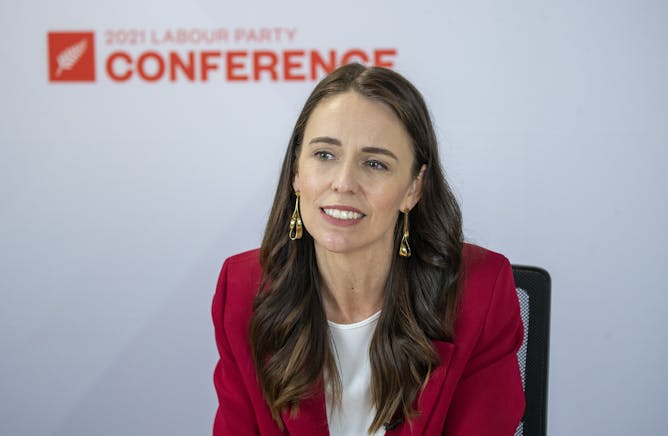
GettyImages
Grant Duncan, Massey University
Managing the competing demands of a pandemic inevitably erodes Jacinda Ardern’s political brand – but changes to Labour’s leadership rules don’t necessarily signal the end of an era.
|
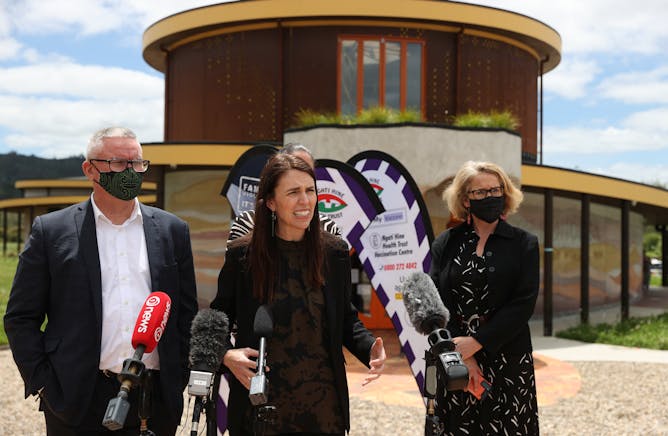
Fiona Goodall/Getty Images
Alexander Gillespie, University of Waikato; Claire Breen, University of Waikato
As protests against COVID restrictions increase, authorities should focus on de-escalating tense and volatile situations, and bringing those who break laws to justice after the event, not during it.
|
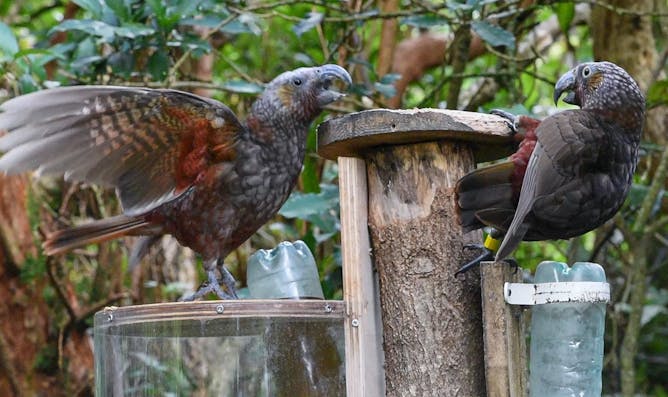
Guo Lei/Xinhua via Getty Images
Scott Burnett, Massey University; Apisalome Movono, Massey University; Regina Scheyvens, Massey University
New Zealanders are increasingly concerned about the state of the environment, but
many don’t feel a strong enough connection to nature to become involved in conservation projects.
|

Shutterstock
Leon Benade, Auckland University of Technology
Modern classrooms are set up in very different ways to the rows of single desks. Does this modern furniture benefit learning?
|

Shutterstock/Siriluk ok
John Donne Potter, Massey University; Naomi Brewer, Massey University
New Zealand is already using self-screening kits for bowel cancer. Giving women the opportunity to self-test for cervical cancer at home will improve equity and lift participation.
|
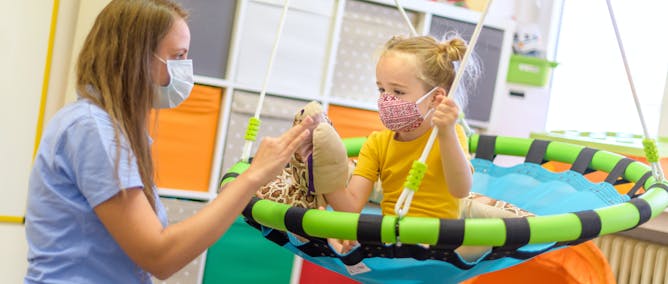
Shutterstock/ABO Photography
Susanna Trnka, University of Auckland; Luca Muir, University of Auckland
Public health measures introduced to protect people from COVID have often exacerbated health conditions and delayed access to therapy for those living with disabilities.
|
From our international editions
|
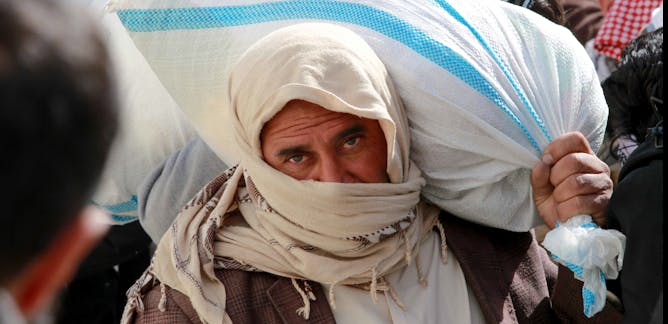
Safiullah Taye, Deakin University; Niamatullah Ibrahimi, La Trobe University
Afghanistan is facing a looming hunger crisis. But the world must engage with the Taliban on purely pragmatic and humanitarian grounds, without extending formal recognition.
| |

Richard Baka, Victoria University
Beijing 2022 is on track to be the most politically-charged games ever.
|

Jake Whitehead, The University of Queensland; Jessica Whitehead, The University of Queensland; Kai Li Lim, The University of Queensland
It’s encouraging to see the Morrison government move past its claim electric vehicles would ‘end the weekend’. But the new plan is not the national electric vehicle strategy Australia deserves, and badly needs.
| |
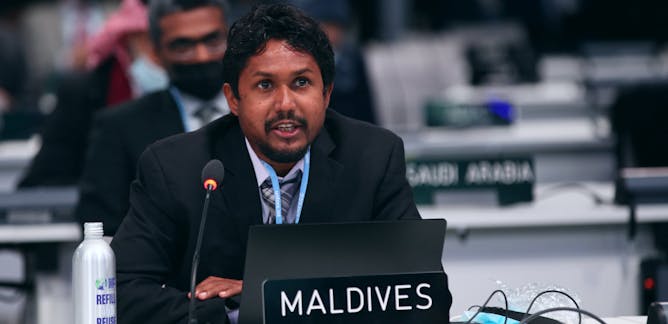
Rachel Kyte, Tufts University
The press releases sound promising, but the negotiations have a long way to go. Here’s what’s ahead at the midpoint of the COP26 climate talks.
|
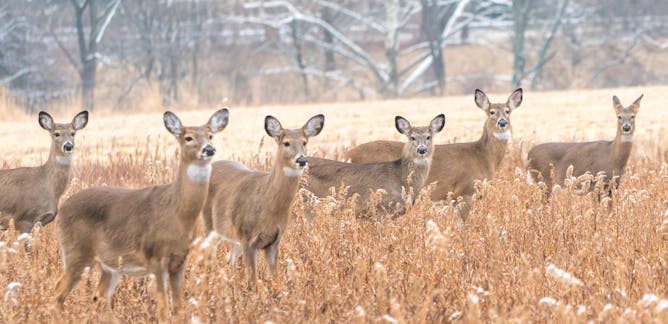
Graeme Shannon, Bangor University; Amy Gresham, Bangor University; Owain Barton, Bangor University
In a sample of white-tailed deer, 80% were found to have an active COVID infection.
| |

Toby James, University of East Anglia
The government has U-turned on a controversial plan to reform the independent parliamentary watchdog but it remains on course to take control of the independent body that runs elections in the UK.
|
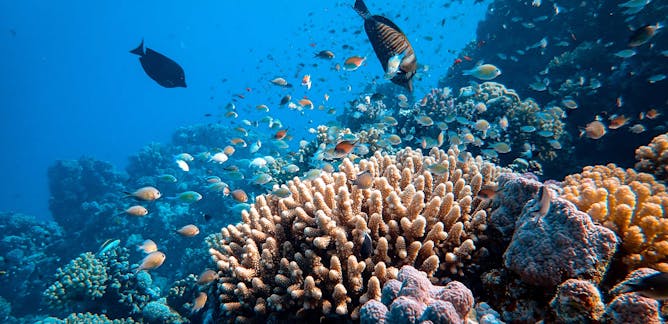
Yusmiana Puspitaningsih Rahayu, The University of Western Australia
Work is still needed to collect more data on the carbon capture capacity of the country’s rich coastal ecosystems.
| |
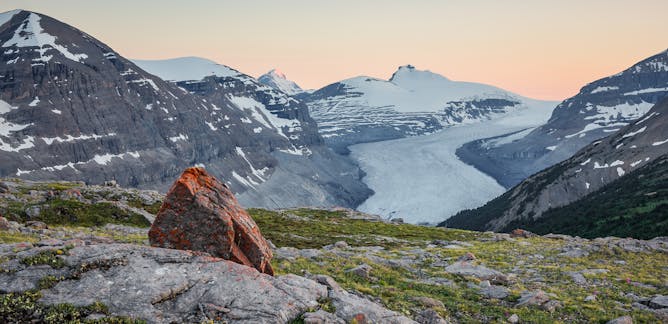
Brian Menounos, University of Northern British Columbia
Policy-makers need the courage to commit to meaningful reductions of greenhouse gas emissions if we want to avoid the widespread loss of mountain glaciers.
|

Trevor Norris, Brock University; Frank Deer, University of Manitoba
Remembrance Day has typically focused on commemorating the costs of military conflict. It is time to reconsider what and we remember and how.
| |
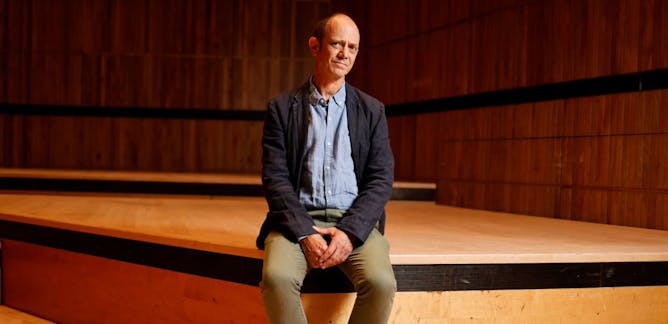
Sofia Kostelac, University of the Witwatersrand
Will white South Africa ever give up part of its privilege? This is the contentious issue at the heart Damon Galgut’s Booker Prize-winning novel.
|
|
|
| |
| |
| |
| |
| |
| |
|
|
|
|
|
|
|